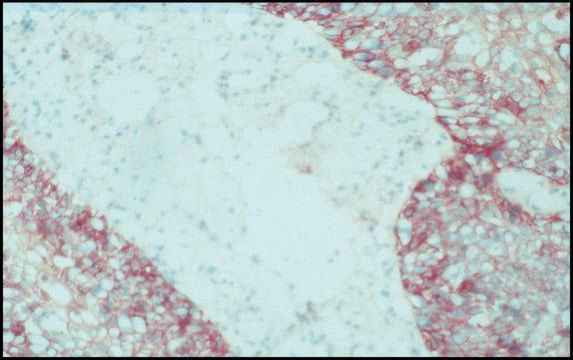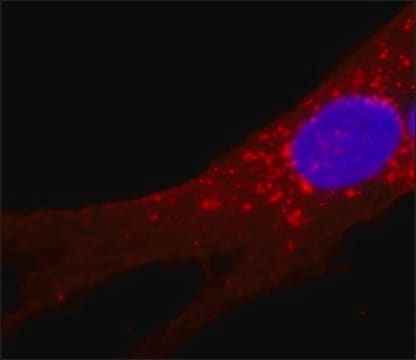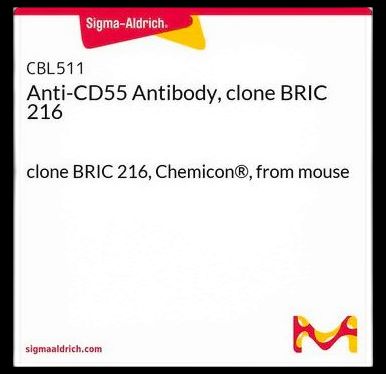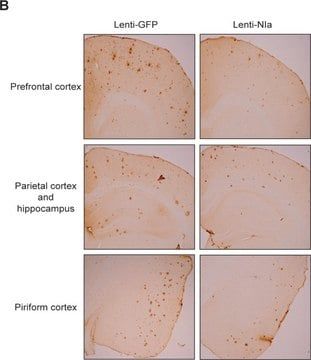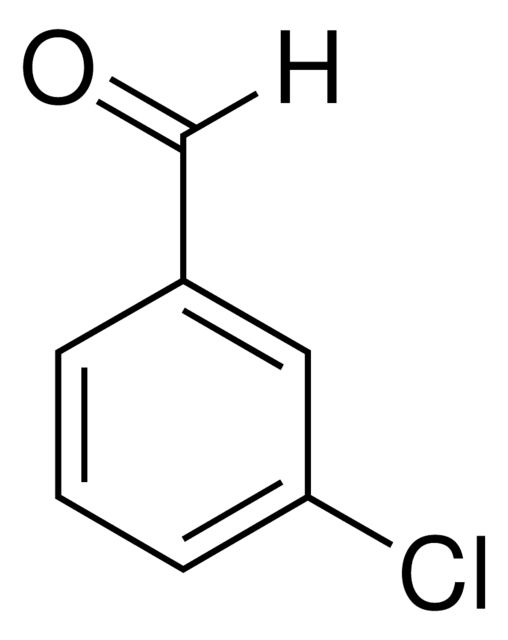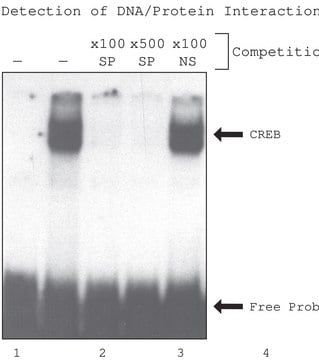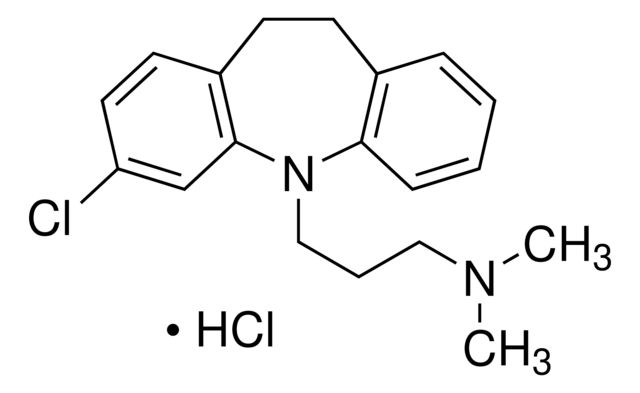C2331
Monoclonal Anti-Carcinoembryonic Antigen antibody produced in mouse
clone C6G9, ascites fluid
Manufacturer: Sigma Aldrich
Select a Size
| Pack Size | SKU | Availability | Price |
|---|---|---|---|
| 100 μL | C2331-100-μL | In Stock | ₹ 49,716.90 |
| 0.2 ML | C2331-0.2-ML | In Stock | ₹ 58,197.30 |
C2331 - 100 μL
In Stock
Quantity
1
Base Price: ₹ 49,716.90
GST (18%): ₹ 8,949.042
Total Price: ₹ 58,665.942
biological source
mouse
Quality Level
200
conjugate
unconjugated
antibody form
ascites fluid
antibody product type
primary antibodies
clone
C6G9, monoclonal
contains
15 mM sodium azide
species reactivity
human
technique(s)
flow cytometry: suitableimmunohistochemistry (formalin-fixed, paraffin-embedded sections): 1:8,000 using human colon carcinoma tissuewestern blot: suitable
isotype
IgG1
Description
- General description: Carcinoembryonic Antigen (CEA) is a member of the immunoglobulin superfamily that regulates cellular signaling and adhesion. CEA inhibits cell differentiation and subsequently facilitates tumor growth . Thus, CEA has been implicated in various cancers, including colorectal, lung and breast tumors Monoclonal Anti-Human Carcinoembryonic Antigen (CEA) reacts specifically with human CEA (CD66e, 180 kDa) from different types of malignant tissues. The antibody detects an epitope which is resistant to 30 minute oxidation by 1% sodium periodate solution in formalin-fixed, paraffin-embedded tissue sections. Enzymatic predigestion with proteolytic enzymes enhances immunohistochemical staining with the antibody.The product reacts with medullary thyroid cancers and also associates with cell surface and cytoplasm of malignant glands in colorectal adenocarcinomas. Additionally, the product reacts weakly with normal colon mucosa and occasionally reacts with bile canalicular and pancreatic acinar cells. However, the antibody does not react with other tested tissue such as term placenta, nor does it bind to non-specific cross-reacting antigen (NCA) in granulocytes.
- Specificity: The antibody reacts specifically with human CEA (CD66e, 180 kDa) from several types of malignant tissue including colorectal, lung and breast tumors. It also stains medullary carcinomas of the thyroid. The product reacts strongly with the cell surface and cytoplasm of malignant glands in colorectal adenocarcinomas. A weak reactivity is seen with normal colon mucosa and occasionally with bile canalicular and pancreatic acinar cells, but not with other tested tissue including term placenta. There is no cross-reactivity with non-specific cross-reacting antigen (NCA) present in granulocytes, using immunoblotting, flow cytometry and immunohistochemical techniques. The antibody recognizes an epitope that is resistant to 30 minute oxidation by 1% sodium periodate solution in routine formalin-fixed and paraffin-embedded tissue sections. Enzymatic predigestion with proteolytic enzymes improves immunohistochemical staining with the antibody.
- Immunogen: carcinoembryonic antigen (CEA) isolated from a human colon adenocarcinoma cell line.
- Application: Monoclonal Anti-Carcinoembryonic Antigen antibody is suitable for use in immunohistochemistry (1:8,000 using formalin-fixed, paraffin-embedded sections of human colon carcinoma tissue).
- Biochem/physiol Actions: Carcinoembryonic Antigen (CEA) inhibits tumor growth in colon, hepatoma and prostate cancers.
- Disclaimer: Unless otherwise stated in our catalog or other company documentation accompanying the product(s), our products are intended for research use only and are not to be used for any other purpose, which includes but is not limited to, unauthorized commercial uses, in vitro diagnostic uses, ex vivo or in vivo therapeutic uses or any type of consumption or application to humans or animals.
SAFETY INFORMATION
WGK
nwg
Flash Point(F)
Not applicable
Flash Point(C)
Not applicable
Compare Similar Items
Show Difference
biological source: mouse
Quality Level: 200
conjugate: unconjugated
antibody form: ascites fluid
antibody product type: primary antibodies
clone: C6G9, monoclonal
contains: 15 mM sodium azide
species reactivity: human
technique(s): flow cytometry: suitableimmunohistochemistry (formalin-fixed, paraffin-embedded sections): 1:8,000 using human colon carcinoma tissuewestern blot: suitable
isotype: IgG1
biological source:
mouse
Quality Level:
200
conjugate:
unconjugated
antibody form:
ascites fluid
antibody product type:
primary antibodies
clone:
C6G9, monoclonal
contains:
15 mM sodium azide
species reactivity:
human
technique(s):
flow cytometry: suitableimmunohistochemistry (formalin-fixed, paraffin-embedded sections): 1:8,000 using human colon carcinoma tissuewestern blot: suitable
isotype:
IgG1
